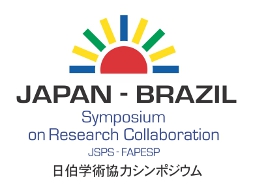ROBERTO BERLINCK
Title
Challenges in Marine Biodiversity and Biodiscovery.
Abstract
The ocean is the last frontier in biodiversity quantification and rational resource exploitation. The scientific and commercial relevance of marine resources are currently considered strategic for the development of nations. The marine biodiversity represents a vast reservoir of biological resources, including a significant fraction of photosynthetic organisms, relevant sources of food and food additives, as well as potentially useful biochemical products. The importance of the marine biodiversity is not only economical, but also ecological because of the central role that the marine environment plays in major global issues, such as climate change, ocean acidification, pollution, ecosystem services, etc.
Brazil has an incipient knowledge of its marine biodiversity. Isolated or ephemeral attempts to fully characterize the marine biota from Brazilian waters, such as the REVIZEE Project, resulted in fragmented taxonomical data that did not yield sufficient information to support marine conservation. The marine projects within the BIOTA-FAPESP Program are still very incipient and localized initiatives. Only a few protected marine areas have been established in Brazil, while many coastal regions have intense economic activity, with no real concern for the management of the marine environment, or for the rational and sustainable exploitation of marine resources. These impacts may cause exploited populations to crash, increase the number of endangered marine species, perpetuate the degradation of habitats and ecosystem services and threaten the natural biota through the introduction of alien species.
Current times urge the use of sound scientific knowledge to provide relevant answers for society’s qualms about marine ecosystems, to develop novel and effective ways to address sustainable exploitation and conservation of marine ecosystems, to support students and laypeople interested in acquiring expertise in marine conservation and also to contribute with new approaches for the sustainable use of marine resources. The presentation will provide data on the current status of marine biodiversity and biodiscovery initiatives in Brazil, and will present challenging questions to be potentially addressed in collaborative efforts with Japanese researchers.
Short Bio
Roberto G. S. Berlinck graduated in chemistry at the University of Campinas (Brazil) and obtained his PhD at the University of Brussels (Belgium). He is a professor at the University of São Paulo since 1993. He spent a sabbatical as visiting professor at the University of British Columbia (Vancouver, Canada) between 1997 and 1998, and was a visiting professor at the University of Utah (Salt lake City, USA) in 2002. In 2002 he was awarded with the Matthew Suffness Award by the American Society of Pharmacognosy. Prof. Roberto Berlinck’s main research interests include the discovery of biologically active metabolites from marine invertebrates and marine microorganisms, in developing new approaches in marine microbial biotechnology towards the production of useful products such as new drug leads and enzymes, as well as the investigation of metagenomes of marine organisms aiming to understand the biosynthetic pathways leading to the formation of biological molecules. Roberto Berlinck published over 90 articles in peer-reviewed journals and supervised over 40 MSc and PhD students and post-doctoral researchers. Professor Berlinck’s has long-standing established collaborations with USA and Canada researchers.







